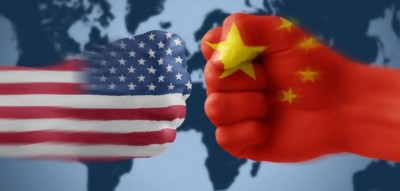12th Round of Sino/US Trade Talks Falls Flat. US Rage for Global Dominance

Over a year of Sino/US trade talks failed to resolve major differences because of unacceptable Trump demands.
On matters of statecraft, China, Russia, Iran, and other countries have outwitted the US.
Sino/US disagreements have little to do with the trade deficit favoring China.
It exists because corporate America relocated much of its manufacturing and other operations to low-wage countries — permitted by US policymakers, responsible for transforming America into a nation unfit to live in, thirdworldized to benefit monied interests.
Irreconcilable structural issues are at the heart of Sino/US differences. They’re all about China’s growing political, economic, financial, and military clout.
It comes at the expense of US rage for global dominance, tolerating no challengers to its aim for dominion over planet earth, its resources and populations, a losing strategy.
Sovereign independent nations the US doesn’t control are targeted for regime change. Republicans and undemocratic Dems want pro-Western puppet governance replacing their ruling authorities.
On Wednesday, Chinese and US negotiators met in Shanghai — the first discussion between both sides since talks collapsed in May.
Beginning with a Tuesday evening dinner, talks officially resumed Wednesday morning. Lasting half a day, no breakthroughs were achieved, none expected.
Ahead of the meeting, Trump slammed China with hostile disinformation, tweeting:
“China is doing very badly (sic), worst year in 27 – was supposed to start buying our agricultural product now – no signs that they are doing so (sic).”
“That is the problem with China, they just don’t come through (sic). Our economy has become MUCH larger than the Chinese Economy is last 3 years (sic).”
“My team is negotiating with them now, but they always change the deal in the end to their benefit (sic).”
“(I)f & when I win (reelection), the deal that they get will be much tougher than what we are negotiating now…or no deal at all (sic). We have all the cards (sic), our past leaders never got it (sic)!”
According to Beijing’s former commerce vice-minister Wei Jianguo, China’s economic growth in Q II was better than expected at 6.2% — compared to annual US growth slowing to 2% and heading south.
International relations Professor Wang Yong said
“China has started to buy soybeans (and other agricultural products) from the US, which could help Trump to counter domestic political pressure, meanwhile US tech firms have raised their voices to lobby the US…to loosen export controls on Huawei,” adding:
“Wall Street bankers also hope to invest more in China. If both sides fail to reach a deal, they will lose China’s market which is expected to further open up in the coming years.”
Trump prioritizes whatever helps his reelection prospects. A pre-election deal with China in late summer/early fall 2020 would serve him best.
It’s unattainable as long as his regime’s demands remain unacceptable. In its latest edition, the Wall Street Journal noted that bilateral talks resumed “with no breakthroughs in sight.”
On Wednesday, China’s official People’s Daily broadsheet referred to Trump’s hostile Twitter storm without mentioning him by name, saying:
“(T)he drums of some Americans struck again on the side, disturbing the main melody — Showing weakness.”
According to VM Markets Singapore managing partner Stephen Innes,
“(w)hatever shred of optimism markets had about the ongoing trade negotiations were dealt as a severe blow when President Trump flew off the handle again at China for not buying American agricultural products.”
Chinese academic Shen Dingli said Trump’s tweets show he’s “eager to get a deal. That shows his weakness.”
China’s Global Times commented on Trump’s tweets, saying
“(t)he US often makes unconstructive remarks when China-US trade talks are about to start. (The approach) never worked,” adding:
All over the world, it is the US, not China, that has become the most difficult country to deal with on trade” and most everything else.
“The US has overthrown too many agreements and rules. How can the White House say China always changes the deal in the end to its benefit? It sounds like the US is talking about itself.”
Time and again, maximum US pressure on other countries fails. It hasn’t worked with Russia, China, North Korea, Iran, Venezuela, Syria, Cuba, or Nicaragua.
Imperial rage is self-defeating, a lesson US policymakers have yet to learn.
*
Note to readers: please click the share buttons below. Forward this article to your email lists. Crosspost on your blog site, internet forums. etc.
Award-winning author Stephen Lendman lives in Chicago. He can be reached at [email protected]. He is a Research Associate of the Centre for Research on Globalization (CRG)
His new book as editor and contributor is titled “Flashpoint in Ukraine: US Drive for Hegemony Risks WW III.”
http://www.claritypress.com/LendmanIII.html
Visit his blog site at sjlendman.blogspot.com.

